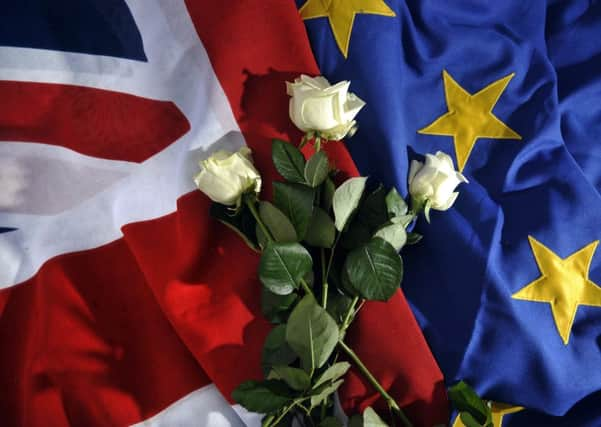Diana Wallis: Brexit strengthens Yorkshire's hand


Referendums are an important way of involving people in decision-making, giving an indication of public thinking at a particular moment on a specific issue.
They maybe regarded either as an alternative to representative democracy (that is, having elected members to make decisions on your behalf) or as a complementary process directly involving the people.
Advertisement
Hide AdAdvertisement
Hide AdDifferent countries use referendums differently. The UK has little history of referendums and no real constitutional framework as to how they can be triggered nor the framework in which their results can be implemented.
We have just gone through what is described as an ‘advisory’ referendum. It is advice to the Government, and to our Parliament, about the next step they should take in relation to the UK’s relationship with the EU. It is not binding as we remain predominantly a Parliamentary democracy.
Again many countries take additional care when putting what maybe called important ‘constitutional’ issues to a referendum vote by requiring either, for example, a certain threshold to be reached, or a ‘federal’ state like the UK requiring the proposition be approved by the people and by each of the component parts or nations of the country.
The success of the Leave vote gives an indication that a simple majority of the people of the UK wish to leave the EU. However it does not give any indication of how the UK’s relationship with the EU should look in the future.
Advertisement
Hide AdAdvertisement
Hide AdThere are differing possibilities, the main options generally seen as the Norway model, the Swiss model or perhaps the Canadian model. The UK Government therefore has no clear mandate about what it is meant to be negotiating with the EU in terms of an exit.
It could perhaps negotiate blind and see what it could get, but that hardly seems like a responsible strategy. It will most likely have to present its strategy first to our Parliament, gain approval and then trigger the Article 50 procedure with the EU, which starts a two year clock ticking to an inevitable divorce from the EU with or without agreement.
So arguably the Government needs either a negotiating mandate at the start of that process and/or a further assent by Parliament and by referendum on the result of that process. In short, we are not done yet.
For Yorkshire, it is a question of how and what the region can achieve in the coming processes and discussions. People need to be listened to and engaged in these at whatever level and preferably at a level nearer to them and where they live their lives. This does not preclude the pressing need to find a way of being involved in global and international decision-making in a democratically accountable manner.
Advertisement
Hide AdAdvertisement
Hide AdFor Scotland, the position seems relatively clear: their population, both by simple majority and in each of the electoral areas, voted clearly to remain in the EU. Their leaders have a clear mandate to pursue a different course or to object strongly to a Brexit which drags them along without agreement. It seems that some are trying to pursue the same argument even on behalf of London.
There are also similar, but different questions to be addressed in relation to Northern Ireland and Gibraltar.
Yorkshire voted clearly to leave the EU. It was a vote that as much as anything reflects a large element of dissatisfaction with the political establishment wherever it might be based.
As Scotland starts to prepare for a second independence referendum, and with the lack of clarity about how and in what manner the Brexit process will proceed, there is a certain opacity as to what the end result will look like.
Advertisement
Hide AdAdvertisement
Hide AdIt all means there will be other (or new) opportunities, perhaps even an early general election, which will provide a chance to press the case for Yorkshire devolution as constitutional and democratic issues will be on the table.
This moment of constitutional upheaval could be an opportunity for Yorkshire and for those campaigning for people in our region to have a greater say in those things that desperately need attention such as education, transport and the economy.
The case for devolution to Yorkshire is strengthened by the June 23, not weakened.
Diana Wallis is a former Member of the European Parliament and member of Yorkshire First - the party for Yorkshire.